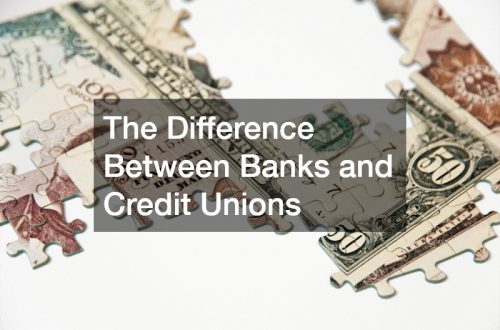
Money is something we use every day; however, many of us are never taught how to use it properly. When we are not taught how to save and spend wisely, we often have a harmful attitude towards money. Understanding financial health is not something that is automatic. It is something you have to learn, either by self-exploration or someone teaching you. There is good news for you — it is never too late to learn, and there are many resources to help you. You can start by reading this article that gives you personal finance tips to help you think differently about money.
Set Specific Goals
Many people do not have a plan for their money. Perhaps they invest a percentage of it in a retirement account that their job offers them. Outside of that, they may not have a real plan. This is one of the first mistakes with finances. One of the top personal finance tips anyone can give is to create a plan and start with a budget. A budget allows you to take a look at the money you are earning and the money you are spending. If you do not have a budget, you may be surprised at what you see. You probably do not have a realistic idea of how much money you are spending and how.
The first step is writing down all of the income you receive in one column and writing down all of the money you spend in the next column. Be honest and do not leave anything out. You must write down every expense you have in one month. This includes the quick trips for coffee or a candy bar. Once you see all your numbers in black and white, you can begin to set goals for yourself. The goals can be anything you want, from reducing spending, save more money, or eliminate debt. A goal can even be making a large purchase, like a house, or a smaller purchase, like a new television. The important step is to write down the goals and be specific. You want to write down the goal, the date you want to achieve it, and how much money it will cost. When you create parameters such as these around your goals, it makes them easier to complete. You have a clear understanding of what you need from a time and money perspective to complete them.
Many first time home buyers must create budgets for themselves. They are now responsible for paying back a large sum of money, and a budget will keep you on task. A budget can ensure you have the money to pay your bills each month. It can also help you pay off your house sooner if that is one of your goals. Once you have set your goals, one of the top personal finance tips is to create a vision board. You can put a photographic representation of the goal you want to create, and it is there for you to see. This reminds you of your goal and why you are working so hard. This is great when you want to go out for drinks even though it is not in your budget. This vision board can remind you that you want your own home more than drinks.
Prioritize Necessities and Paying Off Debt

When you first put your plan on paper, it may seem like you have a lot of places where you are spending money. That is probably true. You may also feel like you spend a lot of money in places you cannot change. You may have a mortgage, for example. You cannot reduce the amount of money you have in your mortgage payment. Well, that may not be completely true. Before it becomes too overwhelming and your brain shuts down, you should prioritize your list.
Your budget includes all of the items on which you spend money each month. You want to put them in order of money you have to spend and money you choose to spend. For example, your mortgage, healthcare, and car payments go in the must category. Lunch and coffee go in a category that indicates you are choosing or wanting the item. Once you separate the items, take a look at the must category. There are some items that you may not be able to reduce or remove, such as health insurance. From the must category, create another column that includes your debts or personal loan.
One of the best personal finance tips you can receive is to focus on paying down your debt as quickly as possible. You do not have to let debt can be a heavy burden to bear. While you may always have some debt, that does not mean you have to carry around a ton of it all the time. Separate your credit cards from any loans you have, such as a car, mortgage, or personal loans. You want to focus your energy on your credit cards and work on eliminating them. While it is important that you pay at least the minimum balance, you then want to pay off your credit card that has the highest interest first. Then continue to pay them off in that order. Another way to reduce your debt burden is to get rid of that brand new car you have and shop for a used car. This may save you a significant amount of money each month.
Sell What You Can

When you are considering a new way of thinking about your finances, it is probably a good tip to consider personal finance tips. One of the things you should consider is selling some of your items. This can not only help you bring in some extra cash that can be used to pay down debt, but it can also help you clean out your house. You probably have items sitting around your house that you do not use. Those items may be collecting dust around the house. One of the items you can consider is to sell used electronics. You may be able to make a large amount of money by selling items that you no longer use. There are many various websites that allow you to easily and safely list your personal items for sale. These websites may be geared to specific types of items. You can find the right website for your items.
Another one of the best personal finance tips is to sell a house for cash. This is a great way to get a large amount of money quickly that you can use for your debts.
Keep Detailed Records

When you have worked so hard to change your perspective on your finances, you cannot stop there. Another one of the great personal finance tips is to keep detailed records. Some of the personal finance tips you should follow include opening bank accounts if you have not already. While you may already have one, you may want to consider opening another so that your money is in two different places. When you have multiple bank accounts, you want to make sure you have detailed records.
We all have to file taxes every year, and it is important that you keep a complete tax history. There are ways to get tax credits and deductions, but you must keep detailed records of the money you spent or lost. These records are important to make sure that you are fulfilling your legal obligation for taxes. If you have a payment you must make, the records make sure that you pay the right amount on time. If you do not pay your taxes on time, you could face penalties.
If you are interested in refinancing your mortgage or any other loan, you want to make sure you have details about the loan you want to refinance. You should keep records of the information during and after the refinancing. This will make sure the first loan is paid off in full. These records help you to make sure you make the appropriate payment at the right time. You may want to consider keeping a calendar of your expenses. This way, you can make sure you are paying all your bills on time. It is easy to miss a bill if you do not have a list of the bills you should pay and when. A great way to prevent that is to keep a record of when you need to pay the bills.
You may unexpectedly find yourself in a place where you need to consult a bankruptcy firm to find out what financial options are available to you. If this happens, you will need to have detailed records about all the bills that you are unable to pay, so the bankruptcy lawyer can help you determine the proper steps to take. If you are going to file bankruptcy, there may be some bills that can be removed as a result of a bankruptcy. You may find out that not all of your bills may not be forgiven. The best way to find out for sure is to have all of your bills documented.
Increase Savings

It is not possible to consider personal finance tips that do not include a savings plan. When you put together a budget, it should include a plan for savings. There are many ways to save and for many reasons. When it comes to a savings plan, you should have short term and long term goals. A long term goal can be to save for retirement or college. A short term goal can be to create an emergency savings plan. This should include enough money to pay all of your bills for two to three months. One of the top personal finance tips includes saving the money in your emergency account first before you begin saving money for a specific item.
Another type of savings plan can be for a specific event or item. This can be for a wedding or a trip. You can also plan to save money for a down payment for a house. You may also want to save for a large purchase like a new television. When you decide on the item or event for which you want to save money, you can determine how much money you need. Once you decide how long you are willing to wait before you purchase the item. This will give you an idea of how much money you will need to spend to get the item you want in the specified amount of time.
Conclusion
There are many ways to change your mindset about your finances. There are many personal finance tips to help you get there. The key is to make some changes as it relates to your finances and stick with them. You should not try all the personal finance tips at one time. That is too much for any one person to attempt at one time. You should pick a few areas where you want to make changes and focus on those. It will probably take a few months before these changes become habits and part of your everyday life. Once you feel like you have gotten a good hold of the changes you made for your finances, you can add some more changes to your life and budget.
No matter which options you choose, you want to incorporate an overhaul to your budget among them. It does not make a lot of financial sense to work on your money goals if you do not create a solid budget for yourself.





